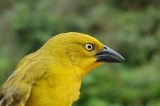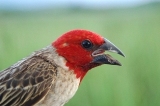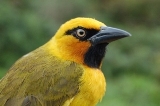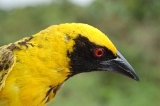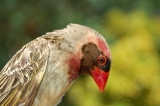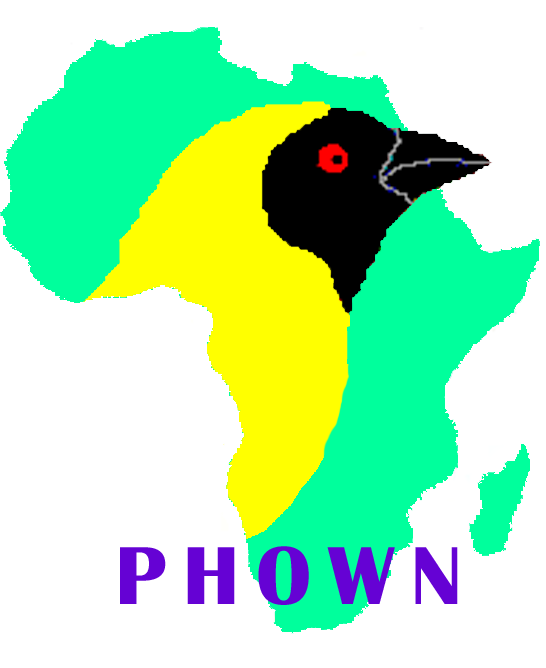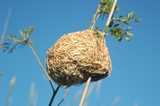PHOWN summaries and recordsVirtual Museum View records in Virtual Museum formatCoverage map for all species Species totals, Nest stats per species and Observer totals Species summary , or General query Observer records, or View VM record Photo of the week, or PHOWN repeats, or PHOWN priorities |
PHOWN record summary
|
Enter new vm record to see a different record and hit 'Go'.
|
Species allocated by Coordinator: Record details entered by participant: (see all records here for this participant) Google map for this record (zoom in and switch to satellite view)
Best: Chestnut Weaver - young males practice nests
Photos uploaded by observer

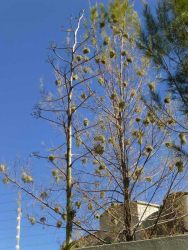
Large photos
796, Chestnut Weaver Ploceus rubiginosus (see species summary here)Record status ACCEPTED Vm 6993 [on-line data upload (2013-08-19): 48542] Species Chestnut Weaver Observer(s) Mendelsohn, John Country, town, locus Namibia, , Windhoek,
2217CALocality Windhoek Latitude, longitude -22.596666666667, 17.105 [0 m accuracy] Date 2013/8/17 Notes Chestnut Weavers are highly nomadic but there are
usually some birds in Windhoek, irrespective of whether it has rained locally or not. I
assume that this is because Windhoek provides a more benign environment with a fairly
reliable food supply.
Of interest is the finding by a friend (Roger Swart) of a colony of nests, apparently being built by males (judging from their behaviour) in non-breeding plumage now in
August when everything is exceptionally dry. I have the impression that these are possibly
young males practising building nests. Nest count 0 Nest site tree
To see this map with all other PHOWN records, click here. Note that the map on this page will load very slowly and probably will only work if you use Chrome as a browser.
History of repeat colony counts
Note: repeats from the same day are not shown.vm Species code Date Nests Notes 6993 796 17/8/2013 0 Chestnut Weavers are highly nomadic but there are
usually some birds in Windhoek, irrespective of whether it has rained locally or not. I
assume that this is because Windhoek provides a more benign environment with a fairly
reliable food supply.
Of interest is the finding by a friend (Roger Swart) of a colony of nests, apparently being built by males (judging from their behaviour) in non-breeding plumage now in
August when everything is exceptionally dry. I have the impression that these are possibly
young males practising building nests. 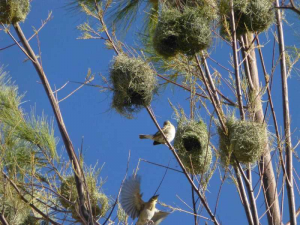
Vm 6993
